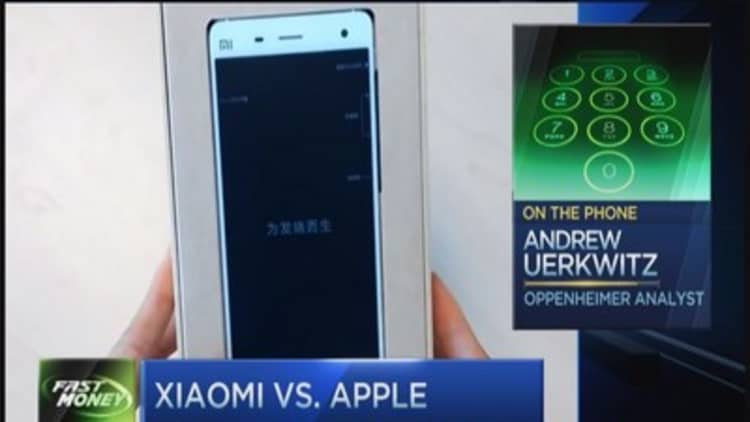Taking a page of out Apple's playbook, Xiaomi employed a cryptic ad campaign for its upcoming launch event on January 15, aiming to build the suspense as the iPhone maker does in the lead up to its product launches.
The 15-second teaser video posted on Xiaomi's Facebook page provides vague hints about its "next flagship device", with three fill in the blanks: "As ___ as paper", "The ___ the better", "As ___ as a bell".
Analysts expect Xiaomi will unveil the Mi5 smartphone – a thinner, faster and lighter successor to Mi4, which was launched last August.
"With Samsung and HTC's flagship phones faltering, this is the perfect opportunity for Xiaomi to grab market share and mind share with a better device," Neil Shah, director at Counterpoint Research told CNBC.
"They have learned from others mistakes. With better specs and aggressive pricing, they should be able to pack a good punch with this flagship," he added.

The timing of the launch is opportune as it comes ahead of the upcoming Chinese New Year holidays during which there is a lot of gift giving, Shah noted.
"They will try to leverage as much as they can in terms of gaining market share in their home market," he said.
Growing fan base
Dubbed the "Apple of China", Xiaomi has generated a huge fan base in the mainland and is gaining growing in popularity elsewhere in Asia.
Read MoreWhat's behind rapid rise of 'China's Apple' Xiaomi?
Over the past year, Xiaomi has made headlines for its rapid growth, becoming the world's third largest smartphone vendor in the third quarter of 2014, according to IDC, ahead of Lenovo and LG.
Xiaomi held a 5.3 percent share of the global smartphone market in the third quarter, trailing Samsung and Apple, who have 23.8 percent and 12.0 percent shares, respectively.
A key factor behind its success was the launch of its Mi4 smartphone, which was positioned as a high-end alternative to the status quo, IDC said.
However, what remains to be seen is how quickly the Beijing- based company can move beyond its home market to drive sales higher.
"While Xiaomi's rapid growth has mostly been in China so far, in the future it has to rely more on the overseas market to sustain the growth," Mark Li, senior analyst at Bernstein Research wrote in a note last week.
"As a startup company, Xiaomi doesn't have a strong IP [intellectual property] pool and hence is facing challenges in the oversea market. Its recent litigation from Ericsson (which resulted in a ban of sales for some of its handsets) may be just the start of many similar troubles in the future," he said.
In December, Xiaomi was asked to stop selling its smartphones in India due to a patent infringement case filed by Ericsson, according to Reuters. Days after, an Indian court gave the company temporary permission to import some of its models running Qualcomm's chipsets. Further hearing for the case is scheduled for February 5.


